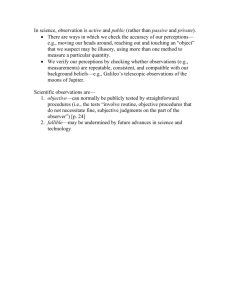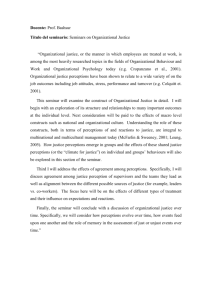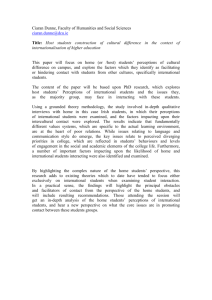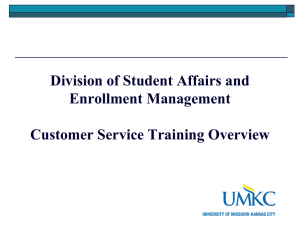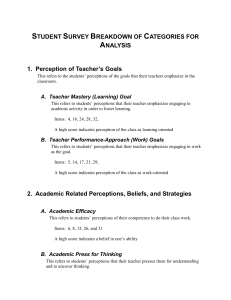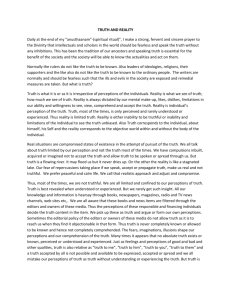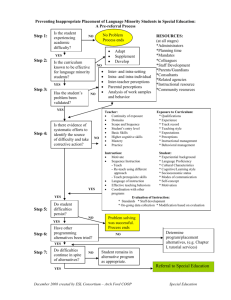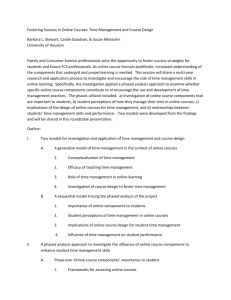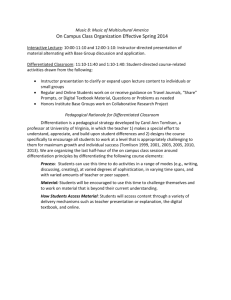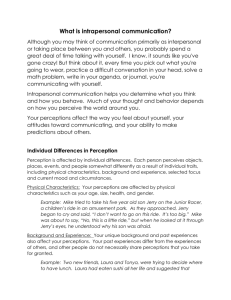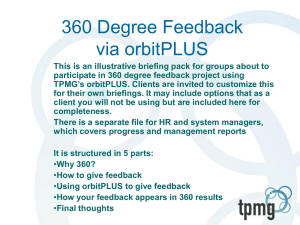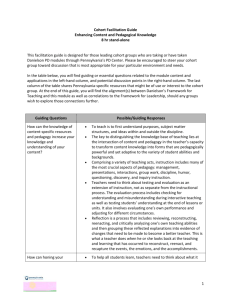Games
advertisement
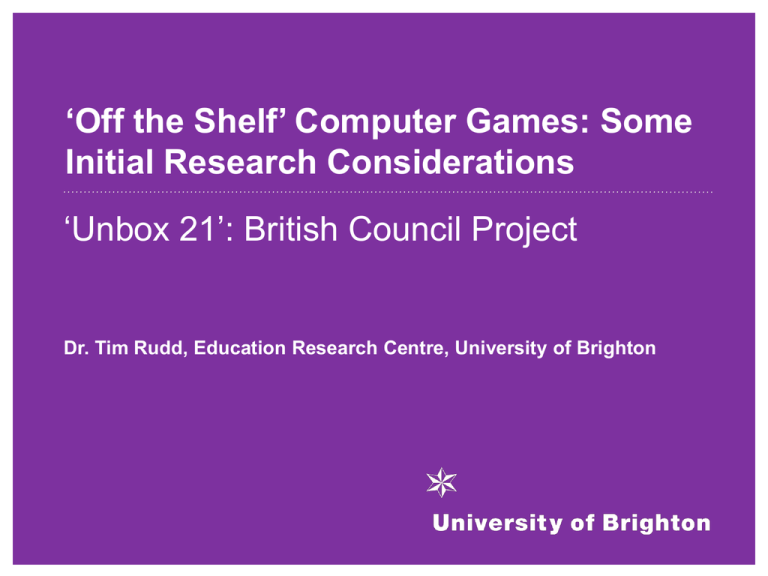
‘Off the Shelf’ Computer Games: Some Initial Research Considerations ‘Unbox 21’: British Council Project Dr. Tim Rudd, Education Research Centre, University of Brighton What is a computer game? - Multitude of types, foci, subject - Varied platforms - Increasing elements of ‘user’ control, design, and collaborative and networked play - Game like qualities in many interactive resources and tools - Multi billion pound industry(s) - Current trends and socio-political climate (e.g. Nesta report; emerging UK policy direction) Changing what it means to be educated today? Changes in practice and pedagogy? Increased importance of critical digital literacies Increased emphasis on develop 21st Century skills COtS games in education 1 Year – 1st of kind/scale Varied use, application & impacts Great potential – new possibilities for pedagogy and practice Teacher and pedagogical understanding key Why are games potentially powerful learning tools? • Media rich, original, engaging content • Dynamic and high speed • Provides instant feedback • Flexible and customisable – end user choice • Collaboration and cooperation Why are games potentially powerful learning tools? • High engagement – low stakes • Ipsitive (assessment) play and challenge • Multi-layered and multi level - varied complexity suited to ‘skills’ of user (internal individual differentiation & response) • Discovery and exploration – self regulated Reported benefits • Motivation, engagement, stimulation • Involvement, collaboration, communication • Co-constructed learning, shared knowledge and skills exchange • Visual, spatial & cognitive processing • Functional and technical skills and understanding • Critical digital literacies, higher order thinking skills Reported benefits • Creativity, problem solving and decision making • Strategy and planning, decoding game and narrative • Conceptual understanding, deduction and hypotheses testing • Subject and skill specific improvements, test scores • New pedagogies and practice, communities of interest and practice • Technological dispositions and wider resonance BUT... Technoromantic and determinist? Many begin & end with motivation, engagement, technical mastery Often unreported, poorly reported or promotional Many one offs – no sustainability or transfer or not replicable Direct causality of impact incredibly difficult Multiple influential variables, Hawthorne effect, contextual milieu Positivist, pseudo scientific approaches inappropriate How might this influence our research approach? Knights of Honor Intervention project Action research, CPD Iterative research and analysis P1. ‘Baseline’ a) context b) prior use, knowledge, perceptions (survey) Initial stimulus materials /events – (logs/capture) Visits and workshops – opening minds to new possibilities Phases 2 & 3 •Framed as action research/CPD – requirements explicit – guidance but not prescriptive/onerous •Develop ‘research’ questions/frame •Research •Develop logs/diaries, broad framework – key foci, theoretical constructs individual (cluster?) projects •Observation, •P3 interviews, focus groups - Post project reflections / interviews/ post ‘baseline’ perceptions (baseline) – next steps Some key areas for investigation Type of game – affordances, functionality, narrative How applied – subject, skills, objectives, time, location etc. Changes in learning and teaching practice and structure & organisation of learning, and relationship Impacts – to subject, skills, achievement Incidental/unexpected changes Changes in perceptions and attitudes Changes in pedagogical practice, perceptions of identity Techno-dispositions and trajectory Some theoretical considerations... Funds of knowledge Person plus ‘Distributed cognition’ or ‘cognitive surplus’ 4C’s Mediational means and refraction through practice Contextualisation, decontexualisation and recontextualisation Cultural, social and economic capitals Rollercoaster tycoon Sustainability – of tools, resources, learning, of knowledge into system, Core reading for all teachers Offer key guidance and raises important questions educators should address from the outset Taken for granted assumptions: Workshops? What is a game? – what is the functionality, components What makes good learning? What is (e.g.) citizenship What are 21st Century skills? Why/how can games be better for learning aims than other resources? Thinking = better learning discussions Current and emerging technology trends The information landscape & data flood Socio-technological trends – 4 C’s and ‘network logic’ Institutional boundaries Importance of geography Working with machines ‘Digital natives’ grow up ‘Hyper’ personalisation Trusted following *Adapted from Futurelab’s Beyond Current Horizons Programme
